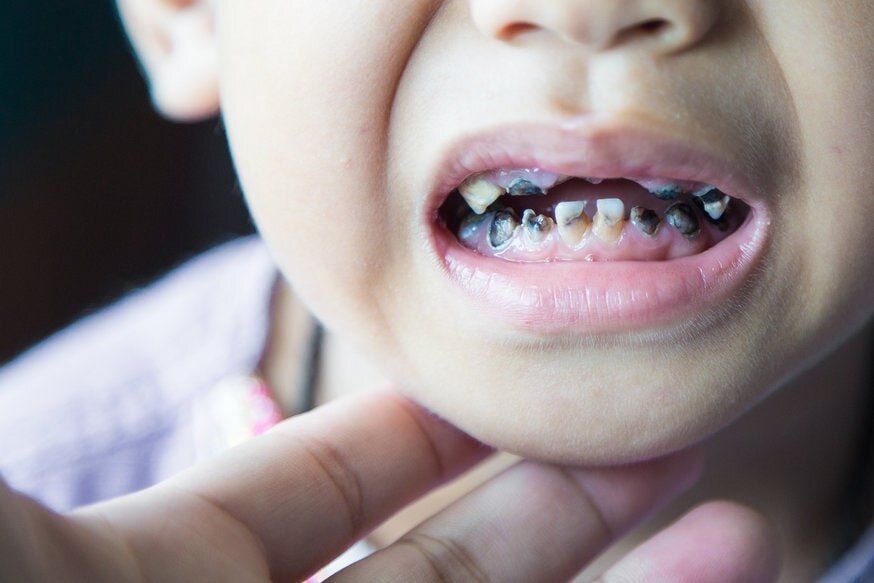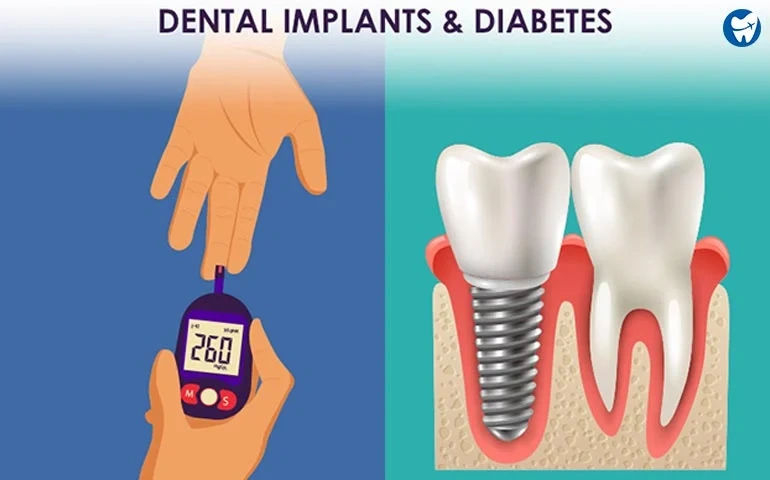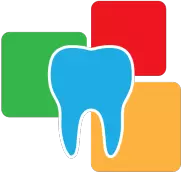Signs That You May Have A Cavity

Oral health is a vital aspect of overall well-being, and one common dental issue that affects people of all ages all over world is cavities. Whether you're a young adult starting your journey to dental care or a seasoned senior who's seen a fair share of dental experiences, it's important to be aware of the signs that you may have a cavity. In this blog, we'll explore these signs and guide you to the best dental care options available, including the "best dentist in Jaipur" and the "top dental clinic in Jaipur."
What is a Cavity?
A cavity, also known as dental caries or tooth decay, is a common dental issue that occurs when the hard, protective outer layer of your teeth, known as enamel, begins to break down. Enamel is the first line of defense for your teeth against harmful substances, and when it weakens, it leaves your teeth vulnerable to damage. Here's a more detailed explanation of what happens in the process of cavity formation:
- Bacterial Action:
Your mouth naturally contains various bacteria. Some of these bacteria feed on sugars and starches from the food you consume. As they digest these sugars, they produce acids as byproducts.
- Acid Erosion:
The acids produced by bacteria are corrosive and can erode the enamel of your teeth. This process is called demineralization. Over time, repeated exposure to acid weakens the enamel, creating small openings or pores.
- Formation of Plaque:
The combination of bacteria, acids, and food debris forms a sticky film on your teeth known as plaque. Plaque adheres to the enamel and acts as a breeding ground for more bacteria.
- Cavity Development:
When the enamel becomes sufficiently weakened, it may eventually break down, forming a cavity or hole in the tooth. These cavities can vary in size and severity. Once a cavity has formed, it can continue to grow and penetrate deeper layers of the tooth, including the dentin and eventually the tooth's pulp.
How Can One Get a Cavity?
Understanding how cavities develop can help you take preventive measures to protect your dental health. Here are some common ways in which individuals can get cavities:
1. Poor Oral Hygiene:
Neglecting regular brushing, flossing, and the use of mouthwash allows plaque to build up on teeth, making it easier for bacteria to produce acid and cause cavities.
2. Diet High in Sugars and Starches:
Foods and beverages high in sugars and carbohydrates provide a ready food source for cavity-causing bacteria. Frequent consumption of sugary snacks and drinks can increase the risk of cavities.
3. Lack of Fluoride:
Fluoride is a mineral that helps strengthen tooth enamel. Using fluoride toothpaste and receiving professional fluoride treatments can make the teeth more resistant to cavities.
4. Dry Mouth:
A reduced flow of saliva in the mouth can contribute to cavities. Saliva helps wash away food particles and neutralizes acids. Conditions that cause dry mouth, such as certain medications or medical conditions, can increase cavity risk.
5. Age and Genetics:
Age-related factors and genetic predispositions can influence susceptibility to cavities. Some individuals may naturally have stronger or weaker enamel.
6. Infrequent Dental Check-ups:
Skipping regular dental check-ups means missing opportunities for early cavity detection and preventive care.
Signs That You May Have a Cavity
1. Tooth Sensitivity:
One of the earliest signs of a cavity is increased sensitivity to hot, cold, sweet, or acidic foods and drinks. If you experience discomfort when consuming these, it's time to pay attention. This sensitivity occurs because the enamel, the protective outer layer of your teeth, is being eroded by the acids produced by bacteria in the mouth. As the enamel wears away, it exposes the sensitive dentin beneath, leading to heightened sensitivity.
2. Toothache:
Persistent or sporadic toothaches, especially when chewing or biting down on something, can indicate a cavity. The pain may range from mild to severe, and it often worsens over time as the cavity progresses. It's essential to address toothaches promptly to prevent further damage to the affected tooth.
3. Visible Holes or Pits:
Examine your teeth in a well-lit area or use a small mirror. If you notice any visible holes, pits, or dark spots on the surface of your teeth, these can be strong indicators of tooth decay. These physical changes are direct evidence of the erosion of tooth structure.
4. Bad Breath:
Unexplained bad breath, or halitosis, could be a sign of a cavity. Bacteria that cause cavities can also produce foul odors. When cavities are left untreated, the bacteria can release acids and toxins that lead to unpleasant breath. Maintaining good oral hygiene, including regular brushing and flossing, is essential to control bad breath.
5. Discolored Spots:
Keep an eye out for any white, brown, or black spots on your teeth. These discolorations often occur as a result of the demineralization of enamel due to acid-producing bacteria. White spots are typically early indicators, while brown or black spots may suggest more advanced decay.
6. Swelling or Pus:
In advanced stages of cavities, you may experience swelling, redness, or even the release of pus near the affected tooth. This is a clear sign of a dental abscess, which is a pocket of pus that forms due to a severe infection. Dental abscesses can be extremely painful and require immediate attention from a dentist to prevent the infection from spreading.
7. Changes in Taste:
Some people notice changes in their sense of taste when they have a cavity. This may manifest as a persistent metallic or unpleasant taste in the mouth, even when not eating or drinking.
8. Difficulty Eating:
As cavities progress and cause tooth decay, you might find it more challenging to chew and eat without discomfort. You may avoid using the affected tooth altogether, leading to changes in your eating habits.
9. Cracked or Chipped Teeth:
In some cases, cavities can weaken the tooth structure to the point that it becomes more prone to cracking or chipping. If you notice any fractures or chips in your teeth, it's important to have them examined promptly.
Recognizing these signs and acting upon them is essential for maintaining your oral health. If you suspect you have a cavity, it's advisable to schedule an appointment with the best dentist in Jaipur as soon as possible. Early intervention can prevent the cavity from progressing and causing more significant dental issues.
Where to Find the Best Dental Care in Jaipur
When it comes to your oral health, you deserve the best care. In Jaipur, you have access to top-notch dental professionals and clinics. Here's how to find the "best dentist in Jaipur" or the "top dental clinic in Jaipur":
1. Ask for Recommendations:
Seek recommendations from friends, family, or coworkers who have had positive dental experiences in Jaipur. Personal referrals can be invaluable.
2. Online Research:
Browse online reviews and ratings of dental clinics and dentists in Jaipur. Websites and social media platforms often feature patient feedback.
3. Check Qualifications:
Ensure that your chosen dentist has the necessary qualifications, licenses, and experience to provide high-quality dental care.
4. Visit the Clinic:
Schedule a preliminary visit to the clinic to get a feel for the environment, meet the staff, and discuss your dental concerns.
In conclusion, being aware of the signs of a cavity is crucial for people of all ages in Jaipur. If you suspect you have a cavity or want to maintain your oral health, don't hesitate to seek out the "best dentist in Jaipur" or visit the "top dental clinic in Jaipur." Your smile and overall well-being are worth it.
Maintain your oral health, and you'll continue to radiate a confident, healthy smile for years to come.
- A-3, Natraj Nagar near Imli Phatak, Jaipur-302015
- +91 9945826926
- contact@amddentalclinic.com

How Diabetes Affects Dental Implants & Gum Health
Discover how diabetes impacts dental implants and gum health. Learn expert tips from AMD Dental Clinic to protect your smile. Read more today!

Is a Dental Implant the Only Option for Replacing a Missing Tooth?
Discover alternatives to dental implants for missing teeth! Explore expert insights from Dr. Mili Gupta at AMD Dental Clinic. Read now to learn more!

Why Dentists Recommend Dental Implants Over Bridges & Dentures | Expert Guide by a Prosthodontist in Jaipur
Discover why dental implants are preferred over bridges & dentures. Learn expert insights from Dr. Mili Gupta at AMD Dental Clinic, Jaipur. Read now!

